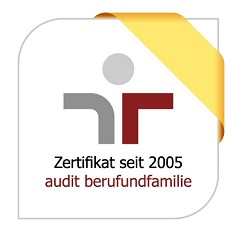Staff Scientist
Reference number: 2024-0324
- Heidelberg
- Full-time
- Junior Research Group "Epithelium Microbiome Interactions"

“Research for a life without cancer" is our mission at the German Cancer Research Center. We investigate how cancer develops, identify cancer risk factors and look for new cancer prevention strategies. We develop new methods with which tumors can be diagnosed more precisely and cancer patients can be treated more successfully. Every contribution counts – whether in research, administration or infrastructure. This is what makes our daily work so meaningful and exciting.
Our Junior Research Group "Epithelium Microbiome Interactions" (headed by Dr. Jens Puschhof) is seeking a
We are looking for a qualified and motivated Senior Postdoctoral Fellow / Staff Scientist to support the scientific and organizational development of our junior research group. In our group, we study how bacteria contribute to cancer development, metastasis and treatment response. Our team includes cancer researchers, tissue engineers, microbiologists, and bioinformaticians working together to help patients by deciphering the functional impacts of bacteria in human tumors. In our projects, we use organoid, organ chip and in vivo platforms to dissect the mechanisms of cancer-microbe interactions.
Your Tasks
The candidate will be responsible for project design and implementation, joint conceptual and laboratory supervision of graduate students, grant writing and reporting, and overall group organization. On the experimental side, the candidate will have the opportunity to work with state-of-the-art in vitro models, including organoids and organ chips, organoid transplantation mouse models, as well as functional microbiology assays. After an initial training phase, the candidate will co-supervise group members on their projects with these platforms. On the organizational side, the candidate will contribute to grant writing and reporting, including an ERC Starting Grant and diverse national and international consortia.
Responsibilities will include:
- Support of the conceptual, administrative and experimental organization of a junior research group
- Grant writing and reporting for national and international research consortia
- Joint supervision of graduate students in cancer microbiome research
- Organization of laboratory processes and events
Your Profile
Required:
- PhD in cancer research, microbiology or computational biology or similar field
- Interest in experimental and computational cancer microbiome work
- Strong organizational and time management skills
- Reliability and flexibility
- Structured, independent, and careful way of working
- Excellent written and oral communication skills in English (German is also of advantage)
Advantageous:
- Postdoctoral research experience of at least 2 years
- Experience with collaborative grant/fellowship writing
- FELASA “EU Function A” certificate (former FELASA B Certificate)
We Offer
Excellent framework conditions: state-of-the-art equipment and opportunities for international networking at the highest level
Remuneration according to TV-L incl. occupational pension plan and capital-forming payments
30 days of vacation per year
Flexible working hours
Possibility of part-time work
Family-friendly working environment
Sustainable travel to work: subsidized Germany job ticket
Our Corporate Health Management Program offers a holistic approach to your well-being
Develop your full potential: access to the DKFZ International Postdoc Program and DKFZ Career Service with targeted offers for your personal development to further develop your talents
Are you interested?
Then become part of the DKFZ and join us in contributing to a life without cancer!
Dr. Jens Puschhof
Phone: +49 6221 42 4953
We are convinced that an innovative research and working environment thrives on the diversity of its employees. Therefore, we welcome applications from talented people, regardless of gender, cultural background, nationality, ethnicity, sexual identity, physical ability, religion and age. People with severe disabilities are given preference if they have the same aptitude.

